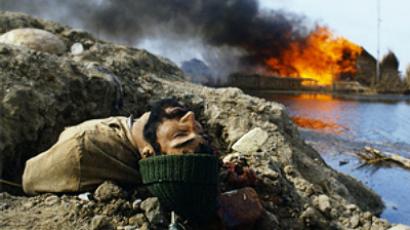Saddam Hussein’s ambiguous legacy
On the 16th of July, 30 ago, Saddam Hussein rose to power in Iraq. His rule lasted for more than two decades and ended with the U.S. invasion of the country in 2003.
Today, opinions about the effects of his rule are divided.
“At the time of Saddam Hussein, people were unable to listen to foreign radio. It could be punished by the death penalty. They were unable to read foreign newspapers. No cell phones, no Internet – nothing at all! Brainwashing from childhood. Now people actually feel free. Everything has changed. You want freedom – you have to pay for it. Iraqis have paid a tremendous price, of course,” says Georgy Mirsky from the Institute of World Economy and International Relations.
The leader of Russia’s Liberal Democrat Party, Vladimir Zhirinovsky, who used to be Saddam Hussein’s personal friend, has a different opinion.
“For almost 30 years he ruled the country. Under his rule, Iraq was one of the most important and wealthiest countries in the Middle East. Its people were at peace and getting a good education. No terrorist organizations, no al-Qaeda, no anti-Semitism. His prime concern was his country. He was a philosopher, not a religious fanatic. He either wore a suit or an Iraqi military uniform without decoration; very modest. He tried to do the best for his nation,” insists Zhirinovsky.













